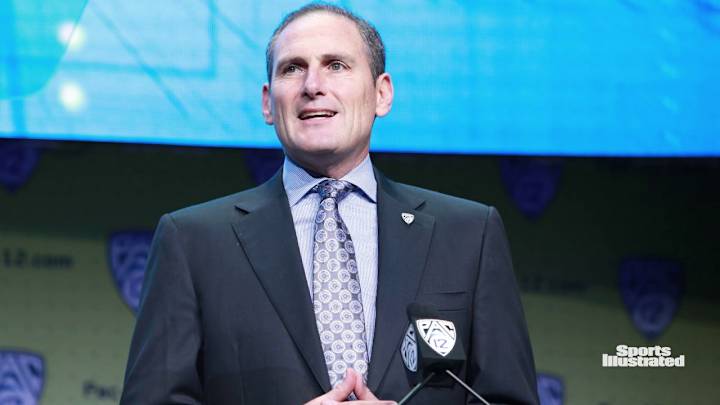ASU News: Pac-12 Taking Steps to Return to Action before 2021

Pac-12 athletics in the 2020 calendar year may have a pulse.
On Thursday, the conference announced a "groundbreaking" partnership with Quidel, a diagnostic healthcare manufacturer, that will lead to daily testing for all athletes of "close-contact" sports starting in early October.
From the Pac-12's statement: "Quidel's Sofia 2 testing machines and tests are expected to be delivered to each of the Pac-12's athletic departments by the end of September 2020. Over the coming weeks, the Pac-12 plans to review this latest testing breakthrough with its sport planning committees and to evaluate the impact on return to competition scenarios."
Pac-12 commissioner Larry Scott joined Quidel CEO Douglas Bryant, head of sports medicine for the University of Washington Dr. Kim Harmon and Dr. Doug Auckerman, athletic director at Oregon State, on a Zoom press conference.
Dr. Harmon went over the impact of Thursday's news.
"We can potentially keep anybody who is infectious out of practice," Harmon said. "So, we can hopefully keep the virus from speaking without sports activities."
Scott said that schools can get the results in just 15 minutes.
"Having the opportunity and ability to identify and immediately remove someone who is potentially affected prior to stepping on the practice field really reduces and removes the risk that currently exists with traditional laboratory testing between collection and then reporting back," Dr. Auckerman said. And so we're really excited about this development. I think it's going to help us find our way back to sports."
Scott also said that when the conference made the decision to postpone on Aug. 11, he did not think attaining this technology would be possible until late November.
With the sooner-than-expected breakthrough, the Pac-12 may be able to get sports going by the start of basketball season.
College hoops are set to tip-off on Nov. 10, but there are several reports that a Nov. 25 start is on the table. This decision is key for the Pac-12's return to action.
"I think we always said we will constantly revisit and track the date and science," Scott said. "As circumstances change, I think we are going to regularly convene with our athletic directors, university presidents and chancellors and evaluate. I'm hopeful that today's news and what's coming from the NCAA will provide us a pathway to start before Jan. 1."
There are still obstacles in front of the clearance to play. Scott said that even if he wanted to start football tomorrow, six of the 12 schools do not have approval from public health authorities to engage in contact practices. Those schools are the four from California and two from Oregon.
Scott did not give any specifics for when football could return. He said that teams still need six weeks of training camp, and when that can start is up to the data and government authorities.
Scott did say that he and Big Ten commissioner Kevin Warren have been in constant communication about football.
"I said to Kevin, a high priority for the PAC-12 would be trying to align our seasons in a way that not only would our student-athletes have a PAC-12 championship game and champion, but it would be awesome to have some of the traditional postseason opportunities the Pac-12 and Big Ten have enjoyed with each other over many, many decades," Scott said.
A spring Rose Bowl appears to be possible.
